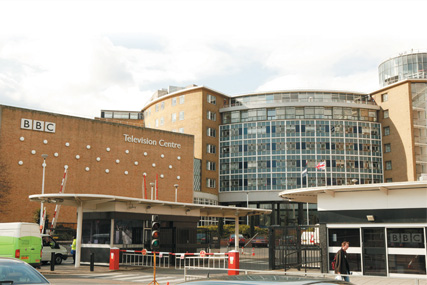
Commercial rivals to the BBC were surprisingly reticent following last week's announcement of the corporation's proposed cuts. These include axing digital radio stations 6 Music and the Asian Network, halving the BBC's web output, and the possible sale of its magazine unit.
Many brands admitted they were keeping their powder dry until the completion of the BBC's 12-week consultation period. However, ITV chairman Archie Norman claimed he could see no advantage for ITV in the strategic review.
The reaction from most commercial media owners can be summed up by that of ISBA. Ian Twinn, director of public affairs at the advertiser body, says: 'I don't think it has gone far enough. Outside of the cuts across its website, it seems small beer.'
Nevertheless, the review does create potential opportunities for some commercial media brands, notably the prospect of household-name magazines such as Top Gear being put up for grabs.
According to one rival publisher, BBC Worldwide, the corporation's commercial arm, will be forced into a major retrenchment and faces three choices: sell the portfolio as a bundle to commercial rivals; keep key titles such as Radio Times and sell the rest; or license the titles to rival publishers.
Valuable brands
Mike Soutar, chief executive of ShortList Media, publisher of free men's weekly ShortList, believes the latter is the most likely outcome. 'The rock-solid brands built on the back of licence-payers money' will attract the big publishers, such as Bauer and IPC, he says, as well as overseas interest.
'The BBC does not need the money from the sale,' adds Soutar. 'It can get an annual return from the licence and there would be an incentive to grow the brands. Look at Marie Claire, which is a prime example of a successful licensing deal.'
Observers also believe that, in the event of a mass sell-off, titles retaining BBC branding - particularly across its children's portfolio, where it carries a seal of authenticity, or successful TV offshoots - would be very attractive targets for buyers.
In the case of the proposals affecting the BBC's broadcast operations, the axing of two radio stations would, at face value, appear to open up prospects for commercial radio owners, which have long argued that they cannot match the lavish budgets of the BBC stations.
However, some observers believe that axing the Asian Network and 6 Music would have a minimal impact.
Scott Taunton, chief executive of TalkSPORT, says: 'I don't think radio will benefit from these cuts,' pointing to the relatively limited reach of DAB - less than 3% of UK cars have DAB radios.
Yet one ex-BBC employee argues that commercial rivals could tap into the chasm left by 6 Music - a station noted for breaking new bands.
'None of the big commercial players have anything to compete with 6 Music,' she says. 'It would be an opportune time for the likes of Global, owner of Heart, and Absolute Radio to get into this area.'
Absolute has previously gone on record saying it would be interested in buying 6 Music, which has a budget of more than £6m a year and about 700,000 weekly listeners.
However, it is perhaps newspaper publishers, or at least their online arms, that will be happiest with the proposals. They, too, have long campaigned for the BBC to rein in its activities.
One newspaper executive described the provision of the BBC's online news content - which has a budget of £112m - as 'unbelievably powerful'; newspapers' online operations have found it difficult to compete.
James Bromley, managing director of Mail Online, disagrees, likening the BBC's proposals to mere 'pruning in commercial media'. However, he does believe that the changes could potentially help small online players, because they give greater definition to the BBC and 'where it could go'.
While the majority of commercial media owners want to see a smaller BBC, the feeling is that real change will come only once they too can access funds from the license fee. Until then, the feeling remains that they will still be at a distinct disadvantage, regardless of the consequences of this review.
BBC CHANGES
OVERALL AIM
Reprioritise nearly £600m a year to invest in higher-quality content by 2013. Reduce the cost of running the BBC by 25%.
TV
- Closure of BBC Switch and BBC Blast - services across radio, online and TV aimed at the teen market.
- The release of the entire BBC programme library to the public.
- Capping TV sports-right spending at 9p in every licence fee £1.
- Investing £50m a year from this total into BBC2, children's programming and journalism.
WEBSITES
- Half of the BBC sites will close, including Street Doctor and Strictly Dance Fever.
- Spending on BBC sites will be cut by 25% by 2012.
- Monthly click-throughs to external sites will be doubled.
- Fewer bespoke programme sites.
RADIO
- Closure of 6 Music.
- Closure of Asian Network.
- Radio 2 must become more distinctive with at least 50% of speech during the daytime.
BBC WORLDWIDE
- Move away from publishing magazines in the UK.
- Derive at least two-thirds of revenue from outside the UK by 2015.

